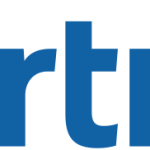- Industry: Consulting
- Number of terms: 1807
- Number of blossaries: 2
- Company Profile:
Gartner delivers technology research to global technology business leaders to make informed decisions on key initiatives.
Distributed power generation is the installation and operation of small modular power-generating units at or near the end user. It is used mainly to reduce transmission and distribution losses and to improve reliability by combining energy management and storage systems. A distributed power generation system can be based on a renewable or nonrenewable energy source and can be operated in either a connected grid mode or an off-grid mode.
Industry:Technology
Distributed generation (DG) is a supply technology that can be at or near retail load, enabling smart buildings and power park/premium operating districts, providing high-quality, 99.999% reliability. Combined with on-site energy storage, DG is a disruptive technology transforming centrally managed radial delivery infrastructure into a geodesic network, providing higher resilience of the power system and enabling consumer integration into energy markets. Traditionally more associated with high-availability fuel cells, increasingly renewable solutions, most notably photovoltaic (PV) solar, are being included as part of a DG solution.
Industry:Technology
A form of client/server computing in which some of the application program logic executes on one computer, possibly with a database, and the rest of the application resides on another computer, possibly along with presentation services.
Industry:Technology
A DBMS that enables end users or application programmers to view a collection of physically separate databases as one logical single-system image. The concept that is most fundamental to the DDBMS is location transparency, meaning the user should not be conscious of the actual location of data.
Industry:Technology
A database whose objects (tables, views, columns and files) reside on more than one system in a network, and can be accessed or updated from any system in the network.
Industry:Technology
A form of client/server computing in which some portion of the application data executes on two or more computers.
Industry:Technology
A form of computing in which data and applications are distributed among disparate computers or systems, but are connected and integrated by means of network services and interoperability standards such that they function as a single environment. See DCE (distributed computing environment).
Industry:Technology
An application framework introduced in 1997 by Visigenic (later acquired by Borland International).
Industry:Technology
System that uses passive (non-powered) or active (powered) networking equipment, such as antennas, fiber-optic, coaxial cable and other technologies to extend RF coverage (of any technology) inside a building.
Industry:Technology
A dish/Stirling engine is a type of concentrated solar power (CSP) system. A large mirrored dish collects and concentrates the sun’s heat on to a receiver, which absorbs the heat and transfers it to fluid within a Stirling engine. The heat causes the fluid in the engine to expand against a piston or turbine. The mechanical power produced runs a generator or alternator to produce electricity.
Industry:Technology
